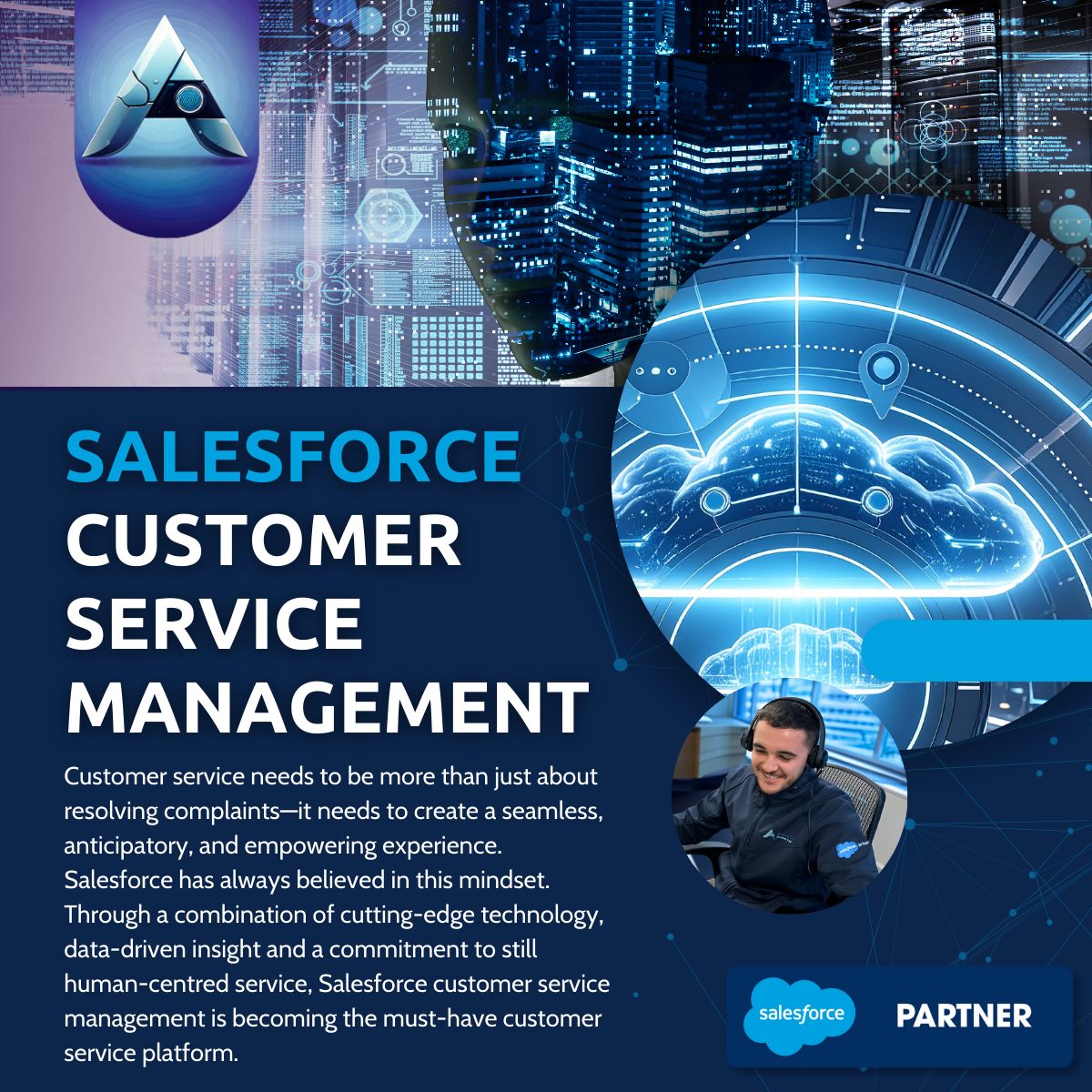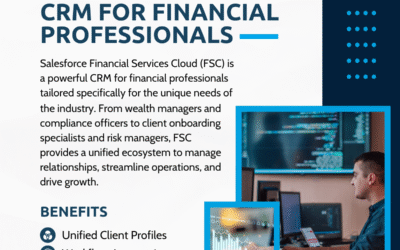
Customer service needs to be more than just about resolving complaints—it needs to create a seamless, anticipatory, and empowering experience. Salesforce has always believed in this mindset. Through a combination of cutting-edge technology, data-driven insight and a commitment to still human-centred service, Salesforce customer service management is becoming the must-have customer service platform.
Customer service excellence is about more than just solving issues. It’s about predicting problems, personalising solutions, and enabling both customers and agents to succeed. From AI-powered assistance to integrated field service tools, Salesforce has become a leader in transforming customer support into a strategic advantage.
1. Integration of AI in Customer Service
Artificial Intelligence (AI) is radically transforming how customer service is delivered. With tools like Agentforce, Salesforce enables organisations to automate routine enquiries, classify support tickets, and provide AI-generated suggestions to agents in real time. This doesn’t just enhance operational efficiency—it also accelerates response times and boosts customer satisfaction.
However, the integration of AI doesn’t eliminate the human element; rather, it augments it. By offloading repetitive tasks to AI, service agents can devote their energy to complex cases that require empathy and judgment. This hybrid model ensures that organisations using Salesforce customer experience management remain both efficient and emotionally intelligent.
2. Proactive and Personalised Customer Engagement
Today’s customers expect organisations to anticipate their needs rather than just react to them. Salesforce makes proactive service possible through predictive analytics and customer profiling. By analysing historical data and behaviour patterns, service teams can identify potential issues before they arise and tailor communications accordingly.
For instance, a customer showing signs of dissatisfaction might trigger an automated yet personalised check-in, significantly improving retention. These strategies are vital components of effective customer service, aligning closely with modern expectations for proactive and individualised care.
3. Enhancing Self-Service Options
Empowering customers to help themselves should be a necessity in all organisations. Salesforce offers tools to create intuitive self-service portals, FAQS, and AI-powered knowledge bases. These platforms guide users through problem-solving steps, offering solutions without the need to contact an agent.
Not only does this boost customer satisfaction, but it also reduces the strain on service teams, allowing them to focus on higher-priority tickets. The expansion of self-service resources exemplifies how Salesforce customer service management evolves to meet both customer needs and internal efficiency goals.
4. Unified Customer Data for Seamless Service
Disconnected data is one of the biggest barriers to superior service. Salesforce overcomes this by unifying customer data across departments—sales, marketing, and service—into a single 360-degree view. This integration ensures agents have real-time access to every interaction, purchase history, and support tickets.
Such visibility empowers service reps to deliver faster, more relevant support, improving first-call resolution rates. It also supports smoother handoffs between departments, a hallmark of streamlined Salesforce customer experience management.
5. Field Service Optimisation
Field service teams are the unsung heroes of customer support, and Salesforce ensures they’re equipped for excellence. Through intelligent scheduling, GPS-enabled mobile apps, and real-time updates, technicians can arrive on-site prepared and on time.
These features reduce missed appointments and enable efficient route planning. Moreover, mobile integration allows field agents to update job statuses and access customer histories in real-time. This not only enhances service delivery but also contributes significantly to overall customer service management effectiveness.
6. Training and Empowering Service Agents
Empowering service agents is crucial for delivering exceptional customer experiences. Aspire CRM offers comprehensive Salesforce training and support services designed to maximise your team’s proficiency and productivity. Our tailored Salesforce User Training programmes equip your staff with essential skills and knowledge, enhancing their ability to utilise Salesforce effectively. Additionally, Aspire CRM provides dedicated Salesforce Integration Support to seamlessly connect Salesforce with your critical business applications, ensuring data consistency and streamlined workflows. We also offer a complimentary and proactive Salesforce Health Check, which identifies potential issues early on, allowing for preventive measures and maintaining peak system performance.
By investing in agent empowerment through Aspire CRM’s specialised training services, organisations can enhance their Salesforce customer service management capabilities, leading to improved customer satisfaction and loyalty.
7. Customer Service Incident Management
Incident management is a critical yet often overlooked aspect of service. Salesforce offers structured workflows for managing service disruptions, from logging incidents to communicating real-time updates and resolutions. Through automated alerts and escalation protocols, organisations can keep customers informed and minimise frustration.
Moreover, analytics tools provide insights into root causes and recurring issues, allowing for long-term improvements. This capability adds a layer of resilience to your Salesforce customer service management, ensuring companies can maintain trust during critical situations.
8. Salesforce’s Role in Customer Retention
While acquiring new customers garners attention, retaining them is often more profitable. Salesforce enables customer retention through tools that automate follow-ups, manage loyalty programs, and collect feedback. With real-time dashboards, companies can monitor satisfaction metrics and intervene before a customer churns.
Customisable journeys ensure that each customer feels valued beyond the point of sale. These practices turn customer satisfaction into loyalty, reinforcing the core of Salesforce customer experience management.
9. Integration of Salesforce with Other Platforms
Salesforce doesn’t operate in a vacuum—it integrates seamlessly with tools like Slack, Jira, and Zendesk. These integrations streamline workflows, allowing service teams to escalate issues, collaborate in real-time, and resolve problems faster.
For example, a support ticket raised in Salesforce can be automatically mirrored in Jira for engineering follow-up, while Slack channels allow instant cross-functional communication. These integrations elevate the Salesforce customer service management platform by breaking down silos and improving speed.
10. Final Thoughts
Through innovations in AI, seamless data integration, and a deep commitment to agent and customer empowerment, Salesforce continues to redefine what customer support should look like. By fully leveraging the strategies mentioned in this blog, organisations can ensure their Salesforce customer service management framework not only meets but exceeds modern expectations.
To maximise the benefits of these advancements, partnering with experienced consultants can be invaluable. Aspire CRM, a certified Salesforce partner, offers comprehensive services—including tailored training programs, seamless integrations, and ongoing support—to help organisations fully harness the power of Salesforce. Our expertise ensures that organisations can optimise their Salesforce customer service management systems, leading to enhanced customer satisfaction and loyalty.




